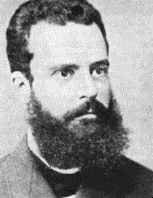Extract:
This counter-intuitive but remarkably simple principle was originated by Vilfredo Pareto, an Italian economist who studied the distribution of wealth in a variety of countries around 1900 and discovered that about 80% of the wealth was owned by 20% of the people.

- In recent times this principle has been expanded and applied to many other areas, think of these (approximates): 80% of the crime is committed by 20% of the criminals, 20% of the clothes in a wardrobe are worn 80% of the time, 20% of customers bring 80% of profits, 80% of the credit received for a job stems from 20% of the effort put in.
- The poignant conclusion of this is that a small number of causes is responsible for a large percentage of the effect, in a ratio of about 20:80, the problem of course is identifying the small number of causes.
- The real stinger is that this means 20% of results absorb 80% of one's resources or efforts
- If this was the situation and nothing can be done this is would depressing indeed, however once identified and observed Pareto's law can be used to gain significant advantage.
- Identify and then focus on developing this key area of any activity, and you will likely see a magnification in the results/credit/profits of that activity.
- It can be applied to almost any situation - focus on the 20% that matters and it will seem as though you have almost an unfair advantage - it seems to be good to be imbalanced.
No comments:
Post a Comment